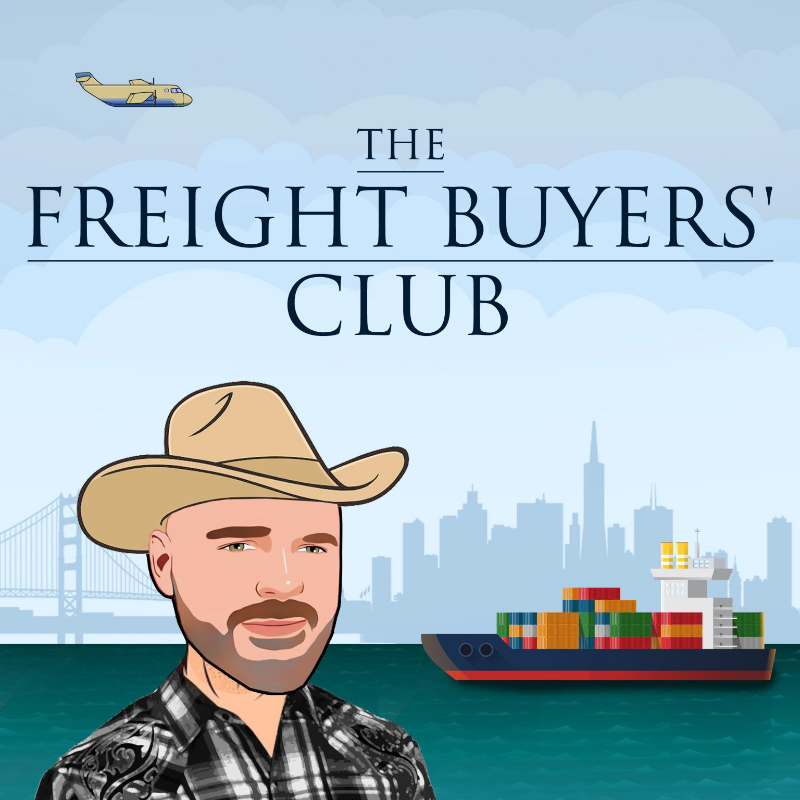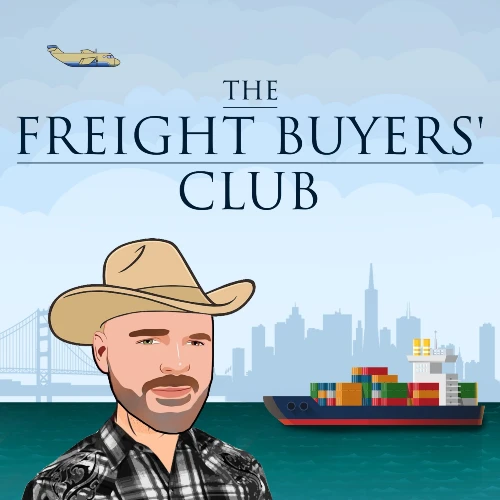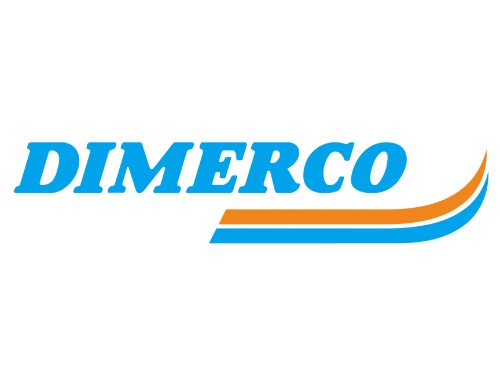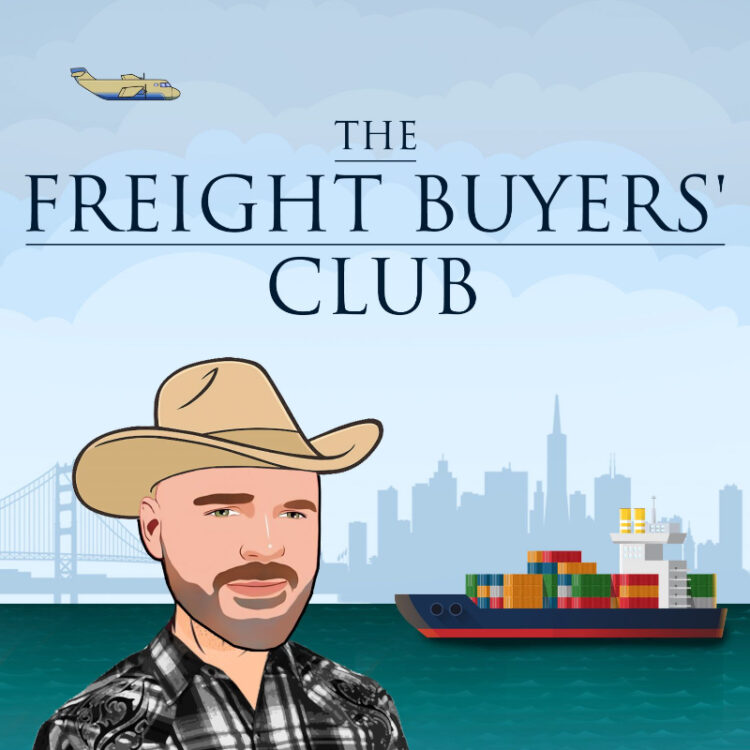richard
Container shipping: Navigating turbulence in 2024
The current global container shipping landscape, viewed through the lens of freight buyers, rivals the complexity seen during the Covid era. Threats of new US tariffs, shipping and geopolitical risks spanning the Middle East and beyond, and substantial shifts in the liner shipping alliance system are casting significant shadows.
In the US market, challenges such as the temporary closure of the port of Baltimore, potential dockworker union actions at Gulf and east coast ports, and low water levels on the Panama Canal add further layers of complexity.
Amidst these dynamics, freight buyers find themselves negotiating transpacific contracts with carriers.
This episode delves into strategies for effectively categorizing and navigating these turbulent waters, while also pondering the potential container shipping-demand balance under less disruptive circumstances.
Guest
Hua Joo Tan, Founder, LINERLYTICA
Navigating the Future of Global Trade and Supply Chains
In this episode of The Freight Buyers’ Club, host Mike King delves into the current state of global trade amidst geopolitical tensions and disruptions with renowned economist, historian, and journalist, Marc Levinson. They explore the long-term implications for importers, exporters, carriers, and the entire transport ecosystem.
From the impact of recent events on supply chains to the shifting dynamics of globalization, in this episode, produced with the support of Dimerco Express Group, Marc shares valuable insights into the future of trade and logistics.
Mike and Marc also discuss the regionalization of supply chains, the delicate balance between efficiency and risk management, and how to best navigate the complex landscape of global trade in an ever-changing world.
Episode in more detail:
A fractured trading environment (02.18)
Deaton and the merits of globalisation (04.45)
Has trade growth peaked? (09.31)
Products<Services (12.59)
Technology implications for trade volumes (16.12)
Do we have the right ships and freighters? (18.37)
Container lines as integrators (21.24)
Competitive advantage and geopolitics (24.54)
Sourcing diversification (26.00)
Trade and security policy (29.13)
A new cold war? (32.41)
SMEs and protectionism (35.05)
Net zero or ground zero (38.12)
About Marc Levinson
Marc is an economist, historian, and journalist with a long track record of writing and speaking about economic and business issues. His book The Box: How the Shipping Container Made the World Smaller and the World Economy Bigger, which explains how a seemingly simple innovation made globalization possible, received many awards. The Great A&P and the Struggle for Small Business in America, which explores the fascinating history of government efforts to crack down on chain stores to protect mom-and-pop retailers, won praise across the ideological spectrum and was published in a second edition in 2019.
His 2016 book, An Extraordinary Time, is an unusual take on the miserable decade of the 1970s, showing how the sudden end of the postwar boom led voters in many countries to choose leaders who promised to cut government down to size — Margaret Thatcher, Ronald Reagan, Helmut Kohl, and others. But they couldn’t bring back the good times, because rapid productivity growth, the critical ingredient in higher living standards, is something political leaders can’t deliver.
His most recent project, Outside the Box, presents an unorthodox history of globalization. It shows that the international economic relationships we’ve known since the late 1980s, based on intricate long-distance value chains, are only a stage in the process of globalization — a stage that was waning long before Trump, Brexit, and COVID-19. But he contends that globalization is far from over; rather, it is moving into a stage in which the flow of ideas and services will be much more important than the flow of boxes filled with goods.
Freight markets, politics, the threat of tariffs and the future of global trade – with Brandon Fried & Jon Monroe
Uncertainty and risk haunt supply chains right now, just as they shadow global politics and economics. Indeed, the future of trade and the musical chairs of international relations have possibly not been tethered so tightly since at least the Cold War, and perhaps even the Second World War.
From Guyana to Central Asia, the Middle East to the South China Sea and Black Sea, risk stalks trade and threatens supply chain resilience, while the outbreak of conflict is reshaping the logistics landscape.
And we also have a different type of risk in 2024 in the shape of billions of people heading to the polls, not least in the US where Americans are getting ready to elect a new President and trade policy – and the threat of new tariffs on US imports from China and elsewhere – is a key political battleground.
This episode asks what all this means in practical terms for freight markets, the shippers that rely on international supply chains, and those in the business of making trade happen, both now and in the long-term.
Host Mike King and his guests also discuss whether technology and collaboration offer solutions to current supply chain inefficiencies and examine the pros and cons of China+1 options.
This episode also includes updates on ocean and air freight markets and rates, insight into the trans-Pacific contracting season, and more analysis of supply chain disruptions including Red Sea diversions, the threat of strikes at US East Coast ports later this year, and the ongoing closure of large swathes of air space to ‘Western’ airlines.
Guests:
Jon Monroe, President, Jon Monroe Consulting
Brandon Fried, Executive Director, Airforwarders Association (AfA)
Episode notes:
‘Rethinking my economics’, Angus Deaton.
https://www.imf.org/en/Publications/fandd/issues/2024/03/Symposium-Rethinking-Economics-Angus-Deaton
Angus Deaton is the Dwight D. Eisenhower Professor of Economics and International Affairs, Emeritus, at the Princeton School of Public and International Affairs and the Economics Department at Princeton University. He is the 2015 recipient of the Nobel Memorial Prize in Economic Sciences.
US West Coast ports hope for a cargo bonanza in 2024 – but are they prepared?
In this deep dive into US logistics and international trade, produced with the support of Dimerco Express Group, host Mike King explores whether 2024 could see a major surge of cargo into US West Coast terminals.
Levi Strauss & Co said earlier this year that it had “already shifted some product to go through the West Coast instead of the East Coast”. Clearly it is not alone. The share of US seaborne imports of apparel shipped from Asia to US West Coast ports rose to 59.1% in December 2023, up from 56.7% in December 2022, S&P Global Market Intelligence data shows. In the first 25 days of January, the ratio increased to 64.8%, the highest since October 2022.
As this episode explores, a number of factors are pushing cargo westwards, not least the Red Sea crisis and diversions of container ships around the Cape of Good Hope. Low water on the Panama Canal and the threat of dockworker union action at US Gulf and East Coast ports later this year are also considerations for shippers.
How deep and significant this trend is for container shipping and US ports and supply chain stakeholders will become clearer after the latest round of trans-Pacific annual contracts have been signed and sealed. A lot of those conversations will be taking place at Long Beach, California, in the first week of March when the city hosts TPM24.
As this podcast explores, many shippers will not just be looking at the cost/transit equation, they will also be asking whether West Coast terminals are ready to handle a surge in cargo.
Guests:
Noel Hacegaba, Chief Operating Officer, Port of Long Beach
Bjorn Vang Jensen, Executive Director for International Transport, Cummins
Alexander King, Branch Manager for New York and New Jersey, Dimerco Express Group
Jon Gold, VP for Supply Chain and Customs Policy, National Retail Federation
Matt Schrap, CEO, Harbor Trucking Association
US West Coast truckers ready for box import surge (but less keen on buying non-diesel trucks)
In this news insights episode of The Freight Buyers’ Club, host Mike King is talking U.S. trucking, drayage, domestic freight demand and international trade with Matt Schrap, CEO of the Harbor Trucking Association.
Among other topics, they delve into:
The readiness of US West Coast truckers to cope with for an influx of import cargo due to disruptions in the Red Sea and Panama Canal.
Whether LA and Long Beach ports have the processes, capacity and labour in place to handle a surge of cargo.
Actions taken to improve the container return system, which had a significant detrimental impact on chassis supply during the pandemic.
The advantages and disadvantages of various appointment systems that drayage operators serving western gateway terminals must navigate.
The sluggish investment in non-diesel trucks despite the availability of subsidies and incentives.
Is the Port of Long Beach ready to receive a new wave of container imports?
In this news insight episode of The Freight Buyers’ Club, Noel Hacegaba, Chief Operating Officer at the Port of Long Beach, outlines why the de facto closure of the Suez Canal to container shipping, low water levels on the Panama Canal, and the threat of union action at rival ports on the US East and Gulf Coast, are creating a unique window of opportunity for West Coast trade gateways.
But after the congestion and chaos of the Covid years, host Mike King asks if Long Beach’s terminals and supply chain stakeholders are now fully prepared to smoothly process a box volume demand spike.
The 2024 trade and economic growth outlook as geopolitical headwinds intensify
In this special News Insight episode of The Freight Buyers’ Club, host Mike King discusses the following with Robert Subbaraman, Head of Global Markets Research at Nomura:
Global economic and trade prospects in 2024
Asia exports outlook
Geopolitical risk in 2024
The slowdown in China
Freight rates and inflation
Trade and a Trump Presidency
Protectionism vs global growth
China + 1 impact on trade
Read More
A shipper’s view: Maersk/Hapag, The Red Sea crisis, CNY and freight rate strategy
In this episode, produced with the support of Dimerco Express Group, host Mike King has an in-depth discussion with Bjorn Vang Jensen, Executive Director for International Transport at American multinational Cummins, on all things shipping and supply chain.
They discuss what the Gemini Cooperation agreement between Hapag-Lloyd and Maersk means for the remaining THE Alliance container lines – Yang Ming, ONE and HMM – and whether 90% service reliability is a realistic target for the new partnership.
They also analyse the Red Sea crisis and how to plan and adapt to disrupted supply chains. And they discuss what shippers should expect in the lead-in to Chinese New Year factory closures, and what geopolitical conflict and risk means for the future of globalisation, international trade and liner strategy.
More on Bjorn Vang Jensen:
Bjorn has experience of all sides of the freight business. Until just over a year ago, he was one of container shipping’s best analysts as VP Advisory Services for Global Supply Chain at Sea-Intelligence Advisory Services. He’s also been a vessel scheduling manager, a salesperson, a freight forwarder and a 3PL.
On the BCO side of the fence, prior to taking the reins at Cummins, he was global head of logistics at Electrolux for 16 years during which time he was responsible for moving millions of TEU and hundreds of thousands of tons of airfreight.




